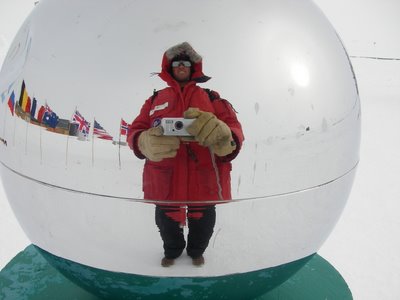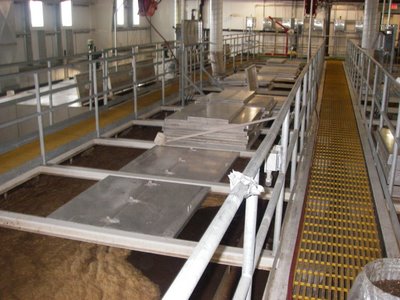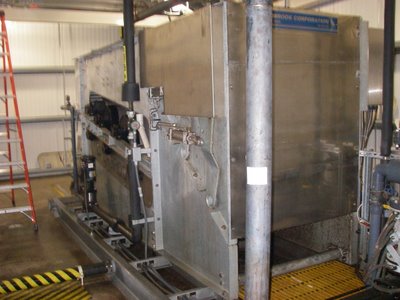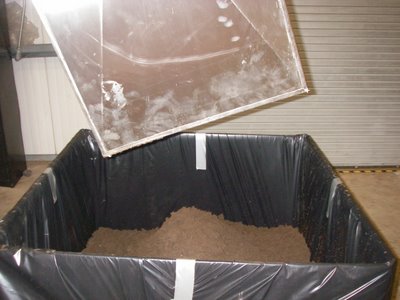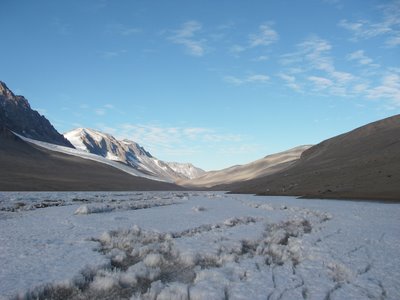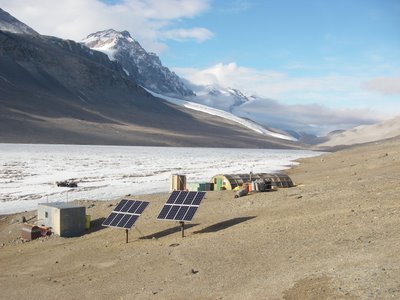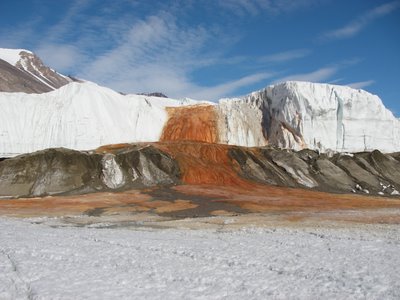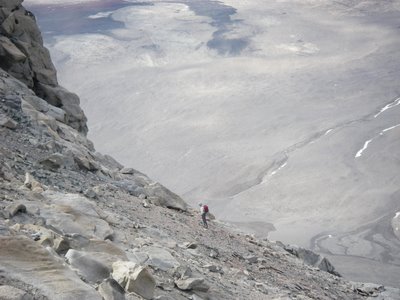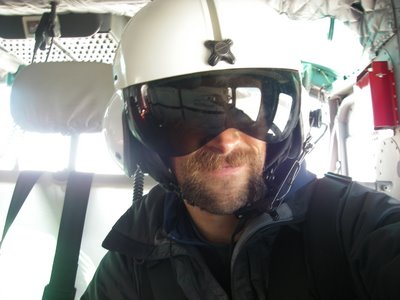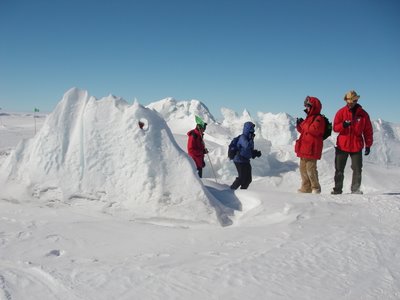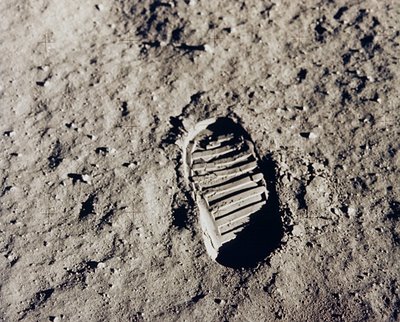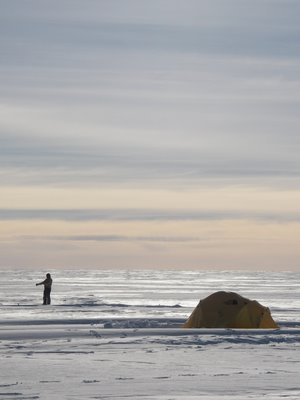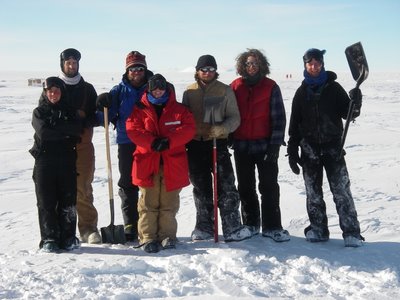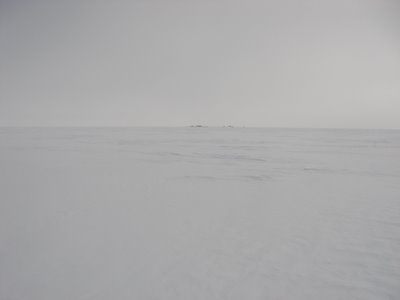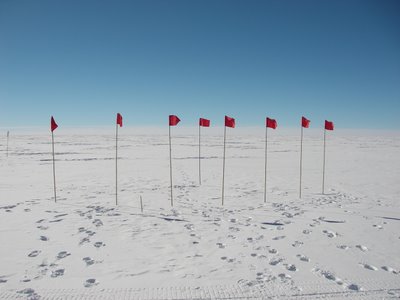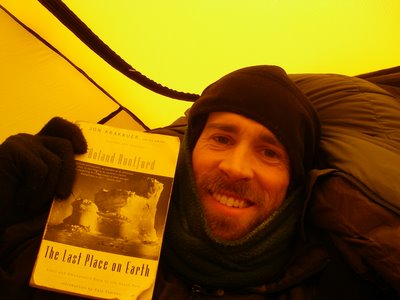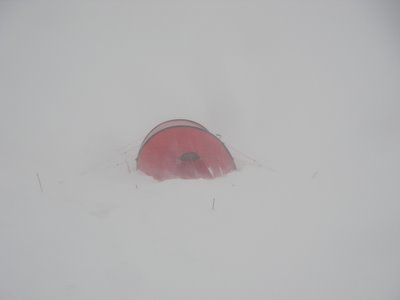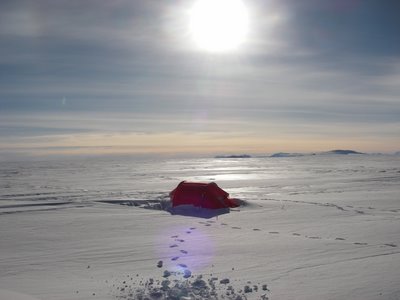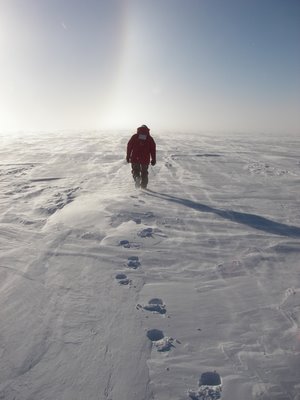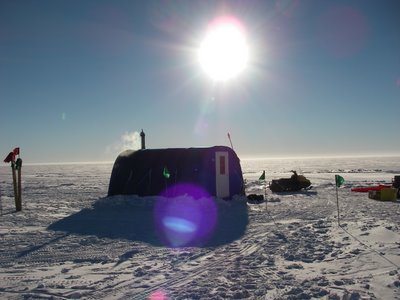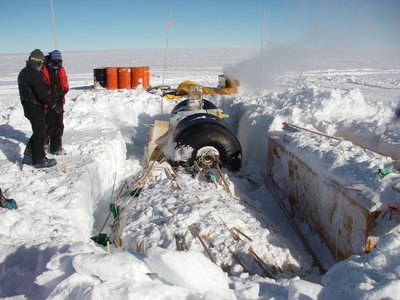
The South Pole. At last, I have arrived. Ninety degrees south latitude. No further south to go. My means of travel were a far cry from the dogs and sleds that took Scott and Amundsen here almost a hundred years ago, but I am here, where they were, nonetheless. I boarded a C-130 this morning at Willy Field (where the ski-equipped planes land and take-off) with one other passenger. Being that there was only two of us, we were invited to make the flight in the cockpit with the pilots, engineer and navigator. Needless to say, I was quite excited and the crew did very well with my usual barrage of questions. Unfortunately, we were flying over clouds the whole time so I did not get to see the cross section of the continent from above. Perhaps another time.

Temperatures are -20 F, with a light wind. I still do not know where I’ll be working and have been told to check my email later on. I will be sleeping in a little curtained room in a Jamesway in an area called “Summer Camp” near the main station where all the summer residents live.
I am now at almost 10,000 feet elevation, with a physiological elevation of about 12,000 feet – this is due to the high latitude, among other things. Doing so in only a matter of hours does not let the body gradually acclimatize. But I’ve been hydrating like it’s my job and careful not to exert myself too much. It is fortunate that I have a few days off to acclimatize before the new year’s work begins. The McMurdo doctors highly recommend the medication Diamox to help speed up the acclimatization process, and though I took it in case I start to feel worse, I am choosing to tackle the altitude with water and rest. A friend of mine took it last month and now highly discourages it as his face was numb for three days. It was very interesting to speak with the McMurdo doctor about altitude illnesses before I left. Good knowledge for being on Denali this upcoming May.

There are about 245 people here right now and it feels strange to be a new guy again, after establishing myself in Mac Town. I like to see how stations work and this one feels like a big ship. I know a few people who are here on loan from Town and it has been very nice to see their friendly faces.
I’ve been told that there are ski expeditions arriving periodically last week and this week. I am interested in seeing these modern travelers.
All in all, I’m very happy to be here, hope to settle in quickly. I am also enjoying reading “The South Pole” by Roald Amundsen – the first human to ever set foot on this place – while I’m here. I’ve wanted to come here for many years, and it is unreal to think that I’m actually at the South Pole. The spin axis of the earth.
A note on time: We stay on the New Zealand daylight time that we were on in McMurdo but all time zones are roughly based on every 15 degrees of longitude. That usually works for everywhere on the globe, however, at the South Pole (and at the North Pole) all meridians of longitude converge on a single location. There is no daily high point of the sun, like there is everywhere else. It just circles and slowly climbs with the approach to the summer solstice (around the 21st of December) and then slowly descends afterwards. So a “day” with respect to the sun is 365 normal days long. Dawn comes on the spring equinox (21st of September for the Southern Hemisphere), noon is on the summer solstice, dusk is on the autumnal equinox (21st of March), and midnight is on the winter equinox (21st of June). Being just past the summer equinox, I’d say that makes it about 12:30pm
The geometry of the South Pole fascinates me to no end. The C-130 that flew me here is part of the only air unit that still regularly uses celestial navigation. Walking down the station earlier, trying to “get my bearings” I asked myself, “Where is north” only a second later to remember that everywhere is north. To make navigation easier, the polar convention is to use Grid North which is set on a line from the south pole towards Greenwich, England and the prime meridian. When facing grid north, 90 degrees to the right is grid east, to the left is grid west, and opposite is grid south – though they all, when at the geographic South Pole, point to the geographic North Pole.
Well that is that, I am here. Hope the geometry doesn’t bore folks. Pictures to come later. Hopefully my fascination will continue after the work really begins. A very happy new year to everyone wherever you are.
